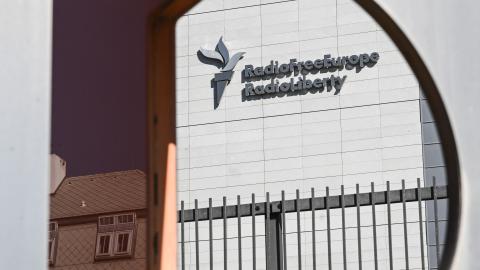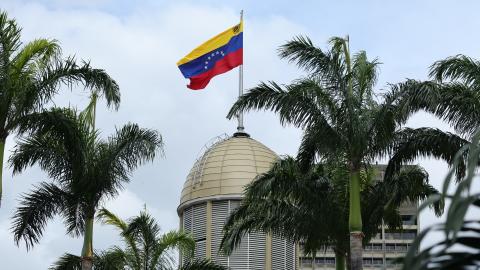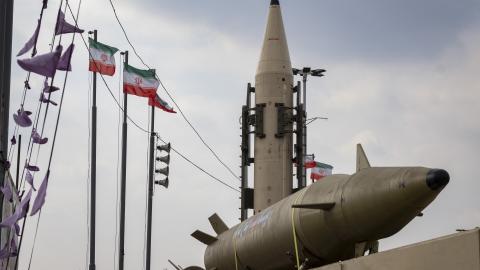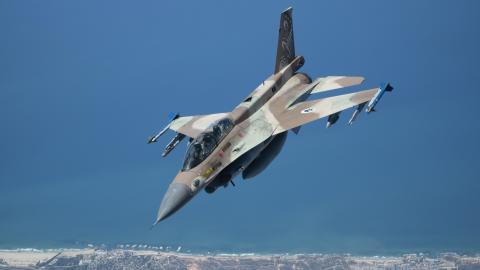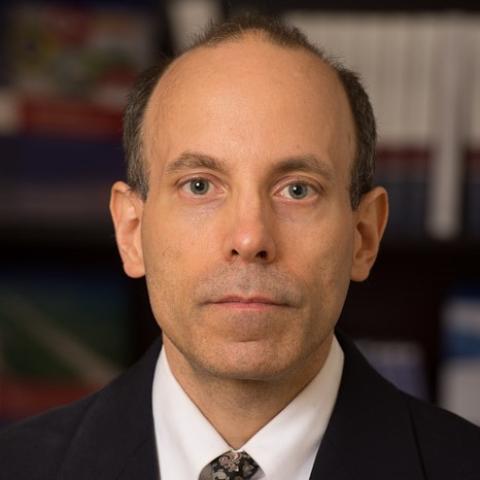In recent years Russia, along with Iraq and Colombia, has become one of the most dangerous countries for journalists. Besides numerous cases of assault and battery as well as frequent threats against media representatives, there has been a string of suspicious deaths among prominent Russian reporters. Some of these incidents have attracted international attention since they involved leading critics of the Russian government. The failure of Russian law enforcement agencies to secure a court conviction in any of these cases has only deepened the mystery surrounding the murders.1
The Deaths of Russias Journalists
On October 7, 2006, Anna Politkovskaya, a vocal critic of Russian President Vladimir Putin was shot five times in the lobby of her apartment building. In her newspaper articles, foreign media broadcasts, and books, she had denounced the Putin administration for alleged human rights abuses, especially during the Chechen War. In 2004, she accused the Russian government of trying to poison her when she became ill after drinking tea on a flight from Moscow to North Ossetia in southern Russia, where she planned to cover the seizure of the school in Beslan by Chechen terrorists.
Igor Yakovenko, general secretary of the Russian Union of Journalists, attributed Politkovskayas death to her criticism of the Kremlin and the war in Chechnya: The fact that the person was killed in the entryway of their apartment building, that the pistol was left at the scene of the crimeall that is the signature of a professional hired killer.2 The fact that the murder occurred in broad daylight and that the killer simply left the gun at the crime scene rather than attempt to conceal the weapon suggests the assassin did not fear the law enforcement. He also might have sought to intimidate other journalists and human rights activists by highlighting that fact.3
At the time of her death, Politkovskaya was writing an article that allegedly included eye-witness accounts of Russians torturing Chechens as well as photographs of tortured bodies for the small liberal newspaper, Novaya Gazeta. According to various sources, the article would have accused Chechen Prime Minister Ramzan Kadyrov of direct involvement in the kidnappings and murders. In an interview conducted just days before her death, Politkovskaya said, I dream of seeing him tried.4
Another prominent incident occurred on March 2, 2007, when Ivan Safronov a retired Russian army Lieutenant-Colonel who had become an influential journalist covering military affairs for the newspaper Kommersant, fell from a window on the fifth floor of his apartment building. In a December 2006 column, Safronov had revealed the third consecutive failed test launch of the new Bulava Submarine-Launched Ballistic Missile. The Russian Ministry of Defense, which sees the Bulava as a core component of Russias future strategic deterrent, had sought to keep the failure quiet. The ministry immediately launched an investigation into the source of the leaks.5
In February 2007, Safronov traveled to an arms convention in Abu Dhabi, United Arab Emirates, to confirm reports of an elaborate scheme whereby Russia would sell S-300 anti-aircraft missiles to Iran and Iskander surface-to-surface missiles to Syria via Belarus. Both weapons systems were more advanced than those Moscow had previously sold to Tehran and Damascus. By using Belarus as a conduit, Russian officials might hope to avoid the international criticism (especially from Israel and the United States) and possible sanctions that would probably result from a direct sale.6
Russian investigators initially said Safronov probably committed suicide. Safronovs purchase of a bag of oranges before returning home, the absence of a suicide note, and other indications calls into question whether he had any such intention. Safronovs associates claim that he had told them of receiving threats should he pursue the weapons deal story. His editor at Kommersant, Dmitry Kamyshev, maintained that, Everyone who knew him would rule out suicide as a possibility.7
Independent Russian defense analyst Pavel Felgenhauerwho recounted similar accounts of Russian military sales, which generate considerable profits for the middlemensaid that Safronov was probably killed because of the sensitivity surrounding the sales.8 However, Kommersant deputy editor Ilya Bulivanov denied that Safronov was an opponent of the Kremlin and warned against politicizing his case. Bulivanov stated that, although Safronov had brushes with this or that official and had been charged in the past with leaking state secrets, Safronovs death was probably not ordered by the Kremlin.9
The Death of Russian Media Freedoms?
It may prove impossible to determine definitively the cause of these deaths. Nevertheless, some observers suspect that agents of the Russian government are behind at least some of them. Although more journalists were killed during the 1990s when Boris Yeltsin was president than during Putins tenure, many of them died covering combat operations in Chechnya or criminal activity. The general lawlessness of the Yeltsin periodwhich saw the widespread use of contract killings as businesses lacked faith that Russias inchoate judicial system could resolve commercial and other civil disputes effectivelyled many observers to view casualties among journalists, now freed from Soviet-era censorship, as a natural consequence of the breakdown of social order during the transition from Soviet communism.10
Whereas most Americans naturally connect the terms law and order, many Russians do not. The Putin administration has managed to restore order in Russia, but not the rule of law. Although no evidence has come to light directly connecting Putin to the deaths, media organizations in Russia and abroad have expressed concern at Russian officials seeming indifference to the murdersincluding Putins own detached assessment of Politkovskaya as an uninfluential extremistas well as the governments failure to curb the violence or identify the perpetrators.11 Unlike the journalists killed during the Yeltsin period, some of the recent deaths have involved reporters who were prominent government critics. An editorial in the March 5 edition of the Russian daily Moskovsky Komsomolets observed after Safronovs death: For some reason, it is those journalists who are disliked by authorities that die in our country.
That the deaths of Russian journalists have coincided with assassination attempts (some successful) against Putins opponents outside Russia has reinforced suspicions of at least some official involvement in both types of incidents. Many see a Russian hand in the 2004 dioxin poisoning of Viktor Yushchenko, then a rival of the Kremlin-backed Ukranian presidential candidate, Viktor Yanukovych. Similar suspicions arose when Alexander Litvinenko, a former Russian intelligence agent who had joined a group of anti-Putin Russian exiles in London, died of Polonium-210 poisoning on November 23, 2006. Besides his ties with Politkovskaya, Litvinenko had written a book accusing the Kremlin and the Federal Security Services (FSB) of being behind the mysterious bombings of Moscow apartment bombings that killed hundreds of people in 1999. The Kremlin, which ascribed responsibility to Chechen terrorists, used the explosions to justify launching another Russian military intervention in Chechnya.
Most recently, on March 3, 2007, an American expert on Russian intelligence activities, Paul Joyal, was shot several times outside his house in a Maryland suburb of Washington, DC, but survived thanks to the fact that his wife, a nurse, was at home and could administer first aid. Although no direct evidence has come to light linking the assault to Russia, the attackers took neither his wallet nor his briefcase.12 The previous week, Joyal had appeared on Dateline NBC to discuss what he believed was the Kremlins role in Litvinenkos murder. Hours before the incident, Joyal had met with his former business partner, Oleg Kalugin, in a restaurant in Washington, DC. Kalugin was a former KGB colonel who has since become a prominent critic of Russias security services.13
Another reason that leads certain observers to suspect Russian government involvement in some of these incidents is that the deaths and assassination attempts have coincided with a sustained government campaign to curb media freedoms and other forms of political expression within Russia. Since Putin became president, the government has restricted journalists access to developments in Chechnya and other sensitive information that might discredit government policies. In addition, it has orchestrated the takeover of the most important media outletsthe major Russian newspapers as well as almost all Russian television and radio stationsby businesses friendly to the Kremlin.
The U.S. State Department recently released its 2006 Country Reports on Human Rights Practices.14 The report on Russia stated that government pressure continued to weaken freedom of expression and media independence, particularly of the major national networks. Of the 2500 television stations in the country, two-thirds are completely or partially owned by the federal and local governments. The government also owns the news agencies ITAR-TASS and RIA-Novosti, as well as the largest radio stations Radio Mayak and Radio Rossiya. Most nominally independent broadcasting companies are indirectly influenced by the government through partial ownership of commercial structures such as Gazprom and Eurofinance Bank, which in turn own large or controlling stakes of media companies.
The State Department report also identified a decline in Russian media freedoms due to legal restrictions as well as unofficial harassment, intimidation, and killing of journalists. In addition, the report states that Russian authorities at all levels employ administrative measures to deter critical coverage. For example, the Russian government withdrew ABCs national accreditation in July 2005 after ABC News broadcast an interview with Chechen rebel Shamil Basayev. Russian media representatives also report receiving guidelines from the Putin administration on which politicians to support and which to criticize.
According to the State Department, federal and local authorities employ a variety of legal actions against journalists to curb critical coverage of government policies. The Glasnost Defense Fund estimates that, in 2006, 48 criminal cases and almost 300 civil cases were brought against journalists in Russia. In July 2006, the Russian Parliament approved a bill that amends the Law on Fighting Extremist Activity so that it now effectively allows government officials to stifle media criticism by labeling independent reporters as extremists. In addition, the authorities can use the dependence of most Russian media organizations on financial support from the government or on pro-Kremlin financial and industrial groups to influence coverage.
These moves produced the expected effect on the tone of the Russian media. A 2006 study conducted by the Russian Union of Journalists and the Center for Journalism in Extreme Situations concluded that Russian television newscasts devote ninety percent of their time to covering the activities of the Russian government or pro-Kremlin politicians. In contrast, opposition parties and their activities receive little coverage.15
The Putin administration has also moved to assert control over the most popular Russian Internet sites under the rubric of curbing terrorist access to them and promoting the transition from analog to digital broadcasting. Until recently, the Russian government imposed few restrictions on Internet use. Russian bloggers, for example, could post information about planned public protests and debate political issues without official restrictions.16
In March 2007, however, President Putin signed a decree creating a single entity to regulate both the technology and the content of broadcasters, newspapers, and websites. The new body will begin operations in June 2007. Russian and foreign observers see the consolidation of these functions in a government super agency as an attempt by the Kremlin to secure control over the entire Russian media spectrum before Putin is due to leave office next year.17 When he met at the end of March with President Hu Jintao of China, a country with one of the worlds most comprehensive system of state control over national Internet usage, the two governments signed a joint declaration that warned that the Web presented some real threats. The two governments pledged to make concerted efforts to enhance domestic and international information security, in particular, in cracking down on criminal and terrorist activities.18
The Death of Russian Democracy?
These restrictions on media freedoms have coincided with other government policies that have curbed Russian political liberties.19 For example, the Russian Duma, which is dominated by pro-Kremlin politicians, has changed the electoral law to make it harder for opposition parties to gain legislative representation. At the same time, the authorities have fostered the creation of two pro-government political parties (United Russia and Fair Russia) in an attempt to channel voters away from established opposition parties.20
Furthermore, a law that came into effect on April 16, 2006, has imposed tighter regulations over the activities of both foreign and domestic nongovernmental organizations (NGOs) working in Russia. Many of the affected NGOs had been prominent in the countrys civil rights movement. Amnesty International argues that Russias legal framework for NGOs does not grant them adequate freedom of expression and association.21 The Russian government also continues to crack down on opposition rallies in major Russian cities.22
The cumulative effect of these measures on the state of Russian democracy will become evident during the next twelve months, when the Russian Federation is scheduled to hold both parliamentary and presidential elections. At present, the signs are not promising. The countrys most important political issuethe question of who will succeed Putin next yearis being decided through factional infighting behind Kremlin walls rather than in free and fair electoral contests where Russian voters could choose between political parties offering competing programs and enjoying equal access to an independent and unintimidated news media.


